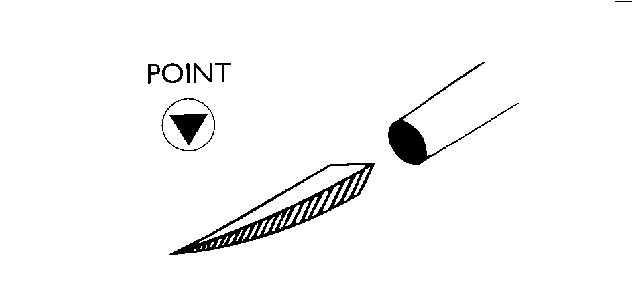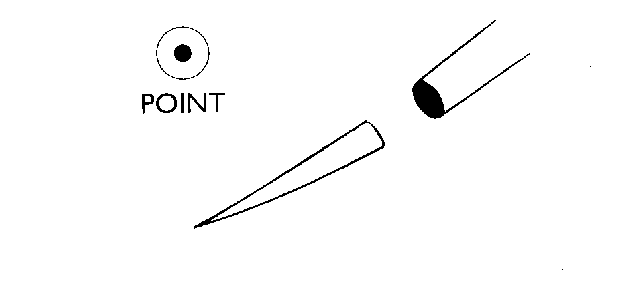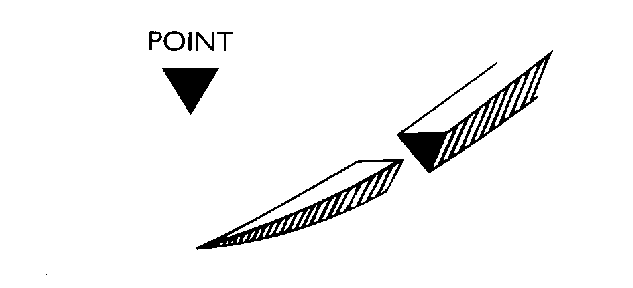
Surgical needles come in a wide range of types, shapes, lengths and thicknesses. The choice of needle to be used depends upon the procedure, the nature of the tissue to be sututred and user preference.
The basic classification for needles is normally by needle type. For perineal repair there are three options
are the preferred choice for perineal repair, as they combine the initial penetration of a cutting needle with the minimised trauma of a round bodied needle. The cutting tip is limited to the point of the needle, which then tapers out to merge smoothly to a round cross section.

These are designed to separate tissue fibres rather than cut them. They can be used for perineal repair, but you may find it difficult to penetrate skin if you are doing an interrupted stitch.

These are required wherever tough or dense tissue (eg. skin) needs to be sutured

The choice of needle shape is frequently governed by the accessibility of the tissue to be sutured - the more confined the operative site, the greater the curvature required. A half circle is the most common needle shape used for perineal repair, although a curved needle is sometimes used for skin.